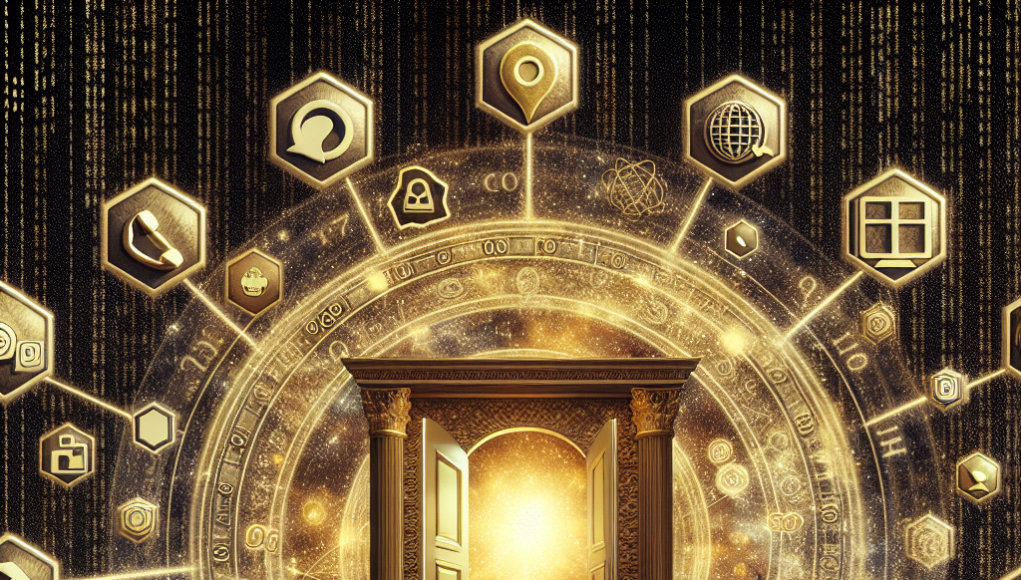Exploring the Future of Digital Luxury Experiences
In an era where digitalization permeates every aspect of our lives, the luxury industry stands at a fascinating crossroads. The intersection of technology and luxury is crafting new paradigms of consumer engagement, offering a tantalizing glimpse into the future of opulence. As digital platforms evolve, so too do the ways in which luxury brands connect with their discerning clientele. This exploration delves into the evolution, innovations, challenges, and opportunities that define the future of digital luxury experiences.
The Evolution of Digital Luxury Experiences
The digital transformation of the luxury sector has been a gradual yet profound journey. Traditionally characterized by exclusivity and tactile experiences, luxury brands have had to rethink their strategies to remain relevant in a digital-first world. The initial foray into digital platforms was met with skepticism, as many feared that the intangible nature of online interactions would dilute the aura of exclusivity that luxury brands are built upon. However, as e-commerce became ubiquitous, luxury brands began to embrace the digital shift, understanding that the online space could complement and enhance their offerings.
Over time, luxury brands have learned to harness the power of digital tools to create immersive and personalized experiences. High-definition imagery, virtual reality (VR), and augmented reality (AR) have allowed brands to showcase their products in exquisite detail, bringing the in-store experience to the digital realm. This evolution has been critical in maintaining the allure of luxury in a world where physical interactions have become increasingly limited. As a result, digital platforms have transformed from mere transaction points into vital components of a brand’s identity and storytelling.
The rise of social media has further accelerated the digital evolution of luxury experiences. Platforms like Instagram and Pinterest serve as visual playgrounds, where brands can curate aspirational lifestyles and engage with global audiences. Influencer collaborations and user-generated content have become instrumental in shaping brand narratives, creating a sense of community and belonging among consumers. This shift has democratized luxury, making it accessible to a broader audience while maintaining its aspirational appeal.
The evolution of digital luxury experiences is also marked by the integration of cutting-edge technologies. Artificial intelligence (AI) and machine learning have enabled brands to analyze consumer data, offering personalized recommendations and bespoke services that cater to individual preferences. This level of personalization has redefined what it means to offer a luxury experience, as brands can now anticipate and fulfill the desires of their clientele with unprecedented precision.
Moreover, the digital evolution has facilitated the emergence of new business models within the luxury sector. Direct-to-consumer (DTC) approaches have allowed brands to establish closer relationships with their customers, bypassing traditional retail channels. Subscription services and curated boxes offer convenience and exclusivity, catering to the modern consumer’s desire for both luxury and ease. These innovations reflect a broader trend of experiential luxury, where the focus is on crafting memorable, personalized experiences rather than merely acquiring products.
In summary, the evolution of digital luxury experiences is a testament to the industry’s adaptability and resilience. By embracing digital tools and platforms, luxury brands have not only preserved their allure but also enhanced it, offering consumers new and exciting ways to engage with their offerings. As technology continues to advance, the possibilities for digital luxury experiences are boundless, promising an exciting future for both brands and consumers alike.
Innovations Shaping the Luxury Market’s Future
The luxury market is at the forefront of technological innovation, constantly seeking new ways to enhance and redefine the consumer experience. One of the most significant innovations shaping the future of digital luxury is the integration of virtual and augmented reality. These technologies allow consumers to immerse themselves in a brand’s universe, offering virtual tours of flagship stores, behind-the-scenes glimpses of craftsmanship, and interactive product demonstrations. By creating these immersive experiences, luxury brands can forge deeper emotional connections with their audience, transcending the limitations of physical space.
Blockchain technology is another innovation poised to revolutionize the luxury market. With its promise of transparency and security, blockchain offers a solution to the long-standing issues of counterfeit goods and provenance. By leveraging blockchain, luxury brands can provide consumers with verifiable proof of authenticity, ensuring that each purchase is a genuine investment. This technology also opens the door to new possibilities, such as digital ownership and the creation of unique, limited-edition virtual assets, further blurring the lines between the physical and digital realms.
Artificial intelligence continues to be a driving force in the evolution of luxury experiences. From chatbots providing instant customer service to AI-driven personalization engines, this technology enables brands to deliver tailored experiences at scale. Predictive analytics and machine learning algorithms allow brands to anticipate consumer needs, offering personalized recommendations and curated collections that resonate with individual tastes. This level of personalization not only enhances the consumer experience but also fosters brand loyalty and engagement.
Sustainability is increasingly becoming a focal point for luxury brands, and digital innovation plays a crucial role in this transformation. Technologies such as 3D printing and virtual prototyping enable brands to reduce waste and streamline production processes, aligning with the growing consumer demand for environmentally responsible practices. Additionally, digital platforms provide a space for brands to communicate their sustainability initiatives transparently, building trust and credibility with their audience.
The rise of the metaverse presents a new frontier for digital luxury experiences. As virtual worlds become more sophisticated, luxury brands have the opportunity to create entirely new ecosystems where consumers can engage with their offerings in novel ways. From virtual fashion shows to exclusive digital events, the metaverse offers a playground for creativity and innovation, allowing brands to push the boundaries of traditional luxury experiences.
Finally, the integration of IoT (Internet of Things) technology is set to transform the luxury market. Smart devices and connected products offer new possibilities for enhancing the consumer experience, from personalized climate control in luxury vehicles to intelligent home automation systems. By leveraging IoT, luxury brands can create seamless, interconnected experiences that cater to the modern consumer’s desire for convenience and sophistication.
Challenges and Opportunities in Digital Luxury
While the digital transformation of the luxury industry presents numerous opportunities, it also brings a unique set of challenges. One of the primary challenges is maintaining the sense of exclusivity and prestige that defines luxury brands in a digital space that is inherently accessible and open. As brands expand their digital presence, they must find ways to preserve the aura of rarity and sophistication that sets them apart, ensuring that digital interactions are as meaningful and impactful as their physical counterparts.
Another challenge lies in balancing personalization with privacy. As luxury brands leverage consumer data to deliver tailored experiences, they must also navigate the complexities of data privacy regulations and consumer expectations. Ensuring data security and transparency is paramount, as any breach of trust can have significant repercussions for brand reputation. Brands must strike a delicate balance between leveraging data for personalization and respecting consumer privacy, fostering trust and loyalty in the process.
The rapid pace of technological advancement presents both opportunities and challenges for luxury brands. Staying ahead of the curve requires continuous innovation and adaptation, as emerging technologies can quickly render existing strategies obsolete. Brands must invest in research and development, exploring new technologies and trends to remain competitive in an ever-evolving landscape. This requires a forward-thinking mindset and a willingness to embrace change, even when it disrupts traditional business models.
The global nature of digital platforms offers luxury brands unparalleled reach, but it also presents challenges in terms of cultural relevance and localization. As brands expand their digital presence into new markets, they must ensure that their messaging and offerings resonate with diverse audiences. This requires a nuanced understanding of cultural nuances and preferences, as well as the ability to adapt global strategies to local contexts without compromising brand identity.
Despite these challenges, the digital transformation of the luxury industry presents significant opportunities for growth and innovation. Digital platforms offer brands the ability to engage with consumers in new and exciting ways, creating immersive and personalized experiences that foster loyalty and engagement. By embracing technology, luxury brands can expand their reach, attract new audiences, and redefine what it means to offer a luxury experience in the digital age.
In conclusion, the future of digital luxury experiences is a landscape rich with potential. While challenges exist, they are not insurmountable, and the opportunities for innovation and growth are vast. By embracing digital tools and technologies, luxury brands can not only navigate the complexities of the digital age but also thrive, crafting experiences that are as luxurious and memorable as they are innovative and forward-thinking.
The digital transformation of the luxury industry is an ongoing journey, marked by innovation, adaptation, and an unwavering commitment to excellence. As technology continues to evolve, so too will the ways in which luxury brands engage with their audiences, crafting experiences that are both deeply personal and universally aspirational. The future of digital luxury is a tapestry of possibilities, woven together by the threads of tradition and innovation, offering a glimpse into a world where technology and luxury coexist in perfect harmony.










